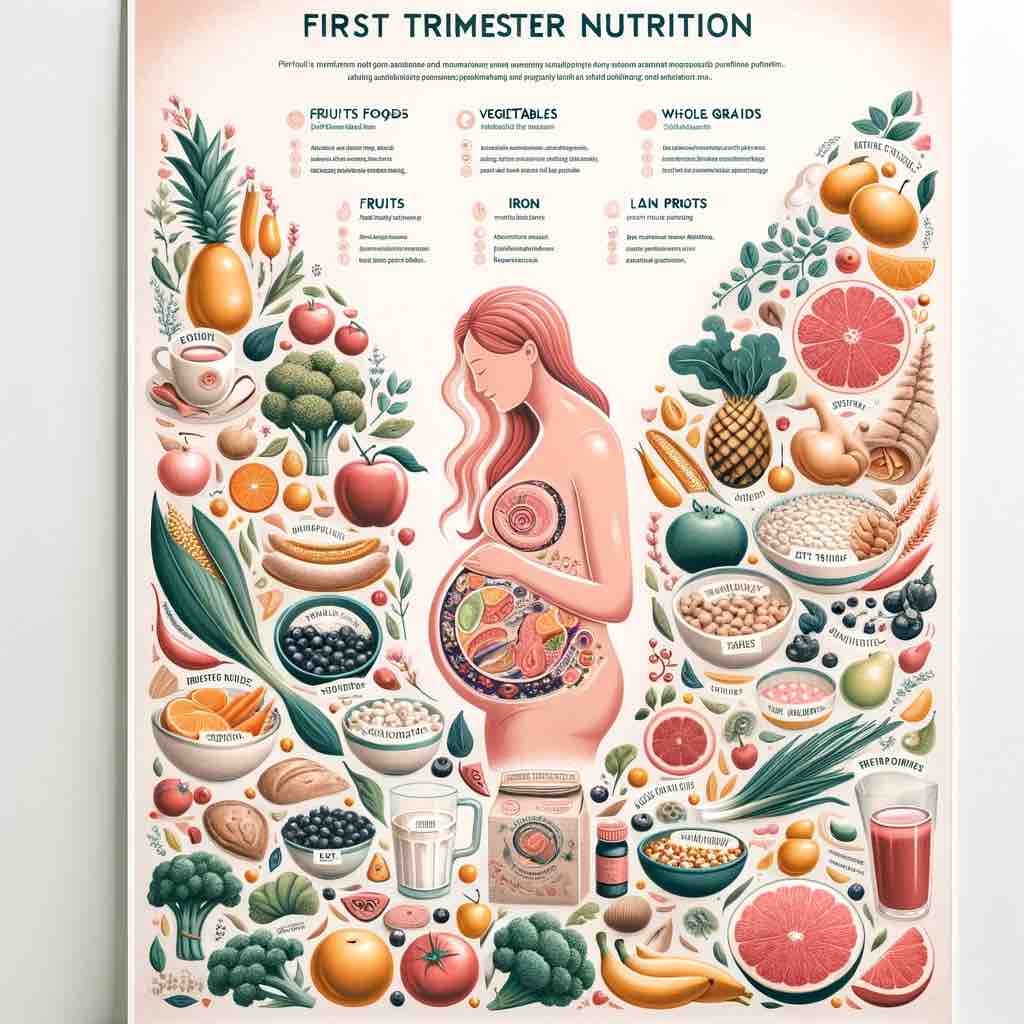
Welcome to our deep dive into the soothing world of ginger and herbal teas. As many expectant mothers know, morning sickness can be a challenging part of pregnancy. Thankfully, nature offers a treasure trove of remedies. Today, we’re focusing on ginger and herbal tea blends, renowned for their ability to alleviate morning sickness while providing additional health benefits. Let’s explore some delightful combinations, their origins, and preparation tips for optimal enjoyment and effectiveness.
1. Ginger and Peppermint Bliss
Ingredients: Fresh ginger root, peppermint leaves
Origin & Benefits: Ginger, a root with a long history in herbal medicine, is celebrated for its anti-nausea properties. Peppermint, a natural stomach soother, complements ginger’s warming essence with its cool, refreshing notes.
Preparation: Thinly slice about an inch of ginger root. Add to a pot with a handful of fresh or dried peppermint leaves. Pour hot water over the blend and steep for 10-15 minutes. Strain and enjoy warm. For a touch of sweetness, add a teaspoon of honey or a few drops of stevia.
Pro Tip: For a summer variation, chill this tea and serve over ice for a refreshing beverage.
2. Lemon Ginger Harmony
Ingredients: Ginger root, lemon zest, lemon balm
Origin & Benefits: This blend brings together the digestive benefits of ginger with the uplifting, zesty flavor of lemon. Lemon balm, a member of the mint family, adds a subtle, lemony fragrance and is known for its calming properties.
Preparation: Peel and slice ginger root, then add to a pot with freshly grated lemon zest. Include a few lemon balm leaves. Simmer in water for 15 minutes, then let it steep off the heat. Strain and savor either hot or cold, garnished with a slice of lemon.
Pro Tip: Use organic lemons for the zest to avoid pesticide residue.
3. Ginger, Chamomile & Lavender Serenity
Ingredients: Ginger root, chamomile flowers, lavender buds
Origin & Benefits: Chamomile, with its gentle, apple-like aroma, has been used for centuries to relax and soothe. Combined with the calming scent of lavender and the stomach-soothing properties of ginger, this blend is a wonderful nighttime remedy.
Preparation: Combine a few slices of ginger with a teaspoon each of dried chamomile flowers and lavender buds in a teapot. Pour boiling water over the mixture and let it steep for about 15 minutes. Strain and enjoy as a serene evening ritual.
Pro Tip: Add a touch of honey or agave syrup to enhance the natural flavors.
4. Fennel & Ginger Digestive Soother
Ingredients: Ginger root, fennel seeds
Origin & Benefits: Fennel, with its sweet, licorice-like taste, is excellent for digestion and pairs well with ginger’s spicy flavor profile. This combination is not only soothing but also aids in reducing bloating and gas.
Preparation: Lightly crush a tablespoon of fennel seeds and combine with ginger slices in boiling water. Simmer for 10 minutes, then steep for an additional 5 minutes. Strain and enjoy, especially beneficial after meals.
Pro Tip: For a more intense flavor, lightly roast the fennel seeds before brewing.
5. Cinnamon, Ginger & Apple Warmth
Ingredients: Ginger root, cinnamon stick, apple slices
Origin & Benefits: The warmth of cinnamon, a spice revered in many cultures for its medicinal properties, pairs perfectly with the natural sweetness of apples and the zing of ginger. This blend is comforting and reminiscent of a spiced apple pie.
Preparation: Boil ginger slices and a cinnamon stick in water for about 15 minutes. Add a few apple slices in the last few minutes of simmering. Allow it to steep, then strain. This tea can be enjoyed hot or cold, and it makes a delightful treat on a chilly day.
Pro Tip: Choose a tart apple variety like Granny Smith for a refreshing twist.
Embracing the Journey with Natural Wellness
Pregnancy is a time of transformation and growth. Incorporating these ginger and herbal tea blends into your daily routine can provide much-needed relief from morning sickness, while also offering a moment of tranquility and self-care.
Always Consult with Healthcare Professionals
While these teas are crafted from natural ingredients and are generally safe, it’s crucial to consult with your healthcare provider before introducing any new herbal remedies into your routine, especially during pregnancy. Personal health conditions and sensitivities vary, and professional guidance is always recommended.
10 FAQs and their answers for the blog post:
- Can these teas really help with morning sickness? Absolutely! Ginger and herbal teas are known for their stomach-soothing properties and can be very effective in alleviating morning sickness.
- How often can I drink these teas? These teas can be enjoyed 2-3 times a day. However, it’s important to listen to your body and adjust the frequency as needed.
- Are there any side effects of these teas? Generally, these teas are safe and side-effect-free. However, if you have allergies or specific health conditions, it’s best to consult with a healthcare professional.
- Can I drink these teas at any time of the day? Yes, but some teas, like the chamomile and lavender blend, are more calming and may be better suited for the evening.
- Is it safe to drink herbal teas during the entire pregnancy? Most herbal teas are safe throughout pregnancy, but it’s important to consult with your healthcare provider for advice tailored to your specific situation.
- Can I add sugar or honey to these teas? Yes, you can add honey or a natural sweetener to taste. However, it’s advisable to use sweeteners in moderation.
- Are these teas suitable for everyone? While these teas are generally safe, individual reactions can vary. If you have any health concerns or allergies, please consult your doctor.
- How long does it take for the teas to work? Some people may feel relief immediately, while for others, it might take a few days of regular consumption to notice the benefits.
- Can I make these teas in advance and store them? Yes, you can prepare these teas in advance and store them in the refrigerator for up to 24 hours. Just reheat gently before drinking.
- Do these teas have any other health benefits? Absolutely! Besides easing morning sickness, these teas can aid in digestion, reduce stress, improve sleep, and boost overall immunity.
Blog Tags for the Post:
Pregnancy Wellness, Herbal Teas, Morning Sickness Remedies, Natural Health, Ayurveda in Pregnancy, Ginger Tea Benefits, Holistic Maternity Care, Herbal Remedies, Pregnancy Nutrition, Soothing Teas for Pregnancy













